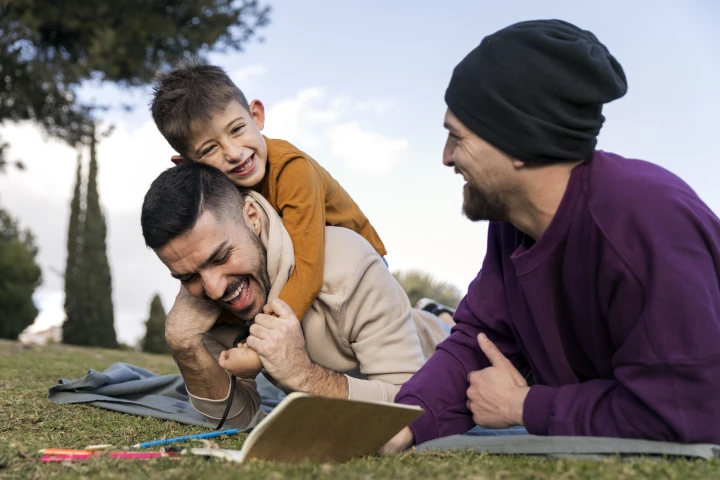
In today's fast-paced world, the significance of relationships in maintaining mental health cannot be understated. Our connections and interactions with others play a crucial role in shaping our overall well-being.
Positive relationships have been shown to have a profound impact on mental health, promoting emotional resilience, reducing stress, and even enhancing feelings of happiness and fulfillment.
Social Support and Emotional Resilience

Role of social support in coping with stress
Social support serves as a protective factor against the negative effects of stress. Social support comes in many forms, such as companionship, emotional, practical, and informational help.
Emotional resilience, the ability to bounce back from adversity, is closely linked to having strong and supportive relationships in our lives. When we have someone to confide in, lean on, and offer guidance, we are better equipped to navigate life's challenges.
Building and Nurturing Healthy Connections
Effective communication and empathy are key components of fostering healthy relationships. By actively listening, expressing understanding, and showing compassion towards others, we can create a foundation of trust and mutual respect.
Strategies for building positive relationships include prioritizing quality time together, engaging in meaningful conversations, and demonstrating genuine care and concern for one another.
Sense of Belonging

Understanding the psychological impact of belonging
A sense of belonging is essential for our mental health and well-being. Feeling connected to others and being part of a community provides us with a sense of identity and purpose. When we belong, we feel understood, accepted, and supported, which can enhance our overall psychological resilience.
Creating a sense of community and connectedness
To foster a sense of community and connectedness, it is important to engage in activities that promote connection and camaraderie. Participating in group activities, volunteering, or joining clubs and organizations can help us establish meaningful relationships and cultivate a supportive network of friends and allies.
Impact on Stress Reduction
Supportive relationships as buffers against stress
Strong relationships act as buffers against stress by providing us with emotional support, encouragement, and a safe space to vent our frustrations.
When we feel supported and understood by others, we are better able to cope with the demands of daily life and navigate stressful situations more effectively.
Shared responsibilities and stress management within relationships
Sharing responsibilities and working together to manage stress within relationships can strengthen our bond and promote a sense of teamwork and collaboration.
By dividing tasks, communicating openly about stressors, and offering mutual support, we can create a more harmonious and balanced dynamic within our relationships.
Emotional Well-being and Happiness
Emotional validation and its positive effects
Emotional validation, the act of acknowledging and accepting someone's feelings, is an important aspect of positive relationships. When we feel heard, understood, and validated by others, our emotional well-being is enhanced, and our relationships thrive.
Mutual growth and fulfillment in positive relationships
Positive relationships provide us with opportunities for personal growth, learning, and self-discovery. When we support and uplift each other, we create a nurturing environment that fosters mutual growth, fulfillment, and happiness.
Healthy Relationship Dynamics
Communication skills for positive interactions
Effective communication skills are essential for building positive relationships. By practicing active listening, expressing ourselves clearly and honestly, and resolving conflicts peacefully, we can create a healthy and harmonious dynamic within our relationships.
Building trust and resolving conflicts within relationships
Trust is the foundation of any healthy relationship. By being honest, reliable, and respectful towards each other, we can build trust and strengthen our connections. When conflicts arise, addressing issues openly and constructively can help resolve conflicts and strengthen our bond.
Loneliness and its Detrimental Effects

Recognizing the impact of loneliness on mental health
Loneliness can have detrimental effects on our mental health, leading to feelings of isolation, depression, and anxiety. Recognizing the signs of loneliness and seeking support is crucial for maintaining our well-being and fostering positive connections with others.
Strategies to combat loneliness and foster connections
To combat loneliness and build meaningful connections, we can reach out to others, join social groups or clubs, and participate in activities that interest us. By actively seeking out opportunities for connection and engagement, we can combat loneliness and enhance our mental well-being.
The Role of Family and Close Friends

Importance of familial and close friendships in mental well-being
Family and close friends play a vital role in our mental well-being. These relationships provide us with unconditional love, support, and a sense of belonging that is essential for our emotional health and happiness.
Nurturing healthy relationships within the family unit
To nurture healthy relationships within the family unit, it is important to communicate openly, show appreciation, and spend quality time together.
By prioritizing family relationships and investing in meaningful connections, we can strengthen our bond and create a supportive and loving environment.
Digital Relationships and Social Media

The influence of online connections on mental health
Digital relationships and social media can impact our mental health in both positive and negative ways. While they offer opportunities for connection and communication, they can also lead to feelings of comparison, isolation, and FOMO (fear of missing out).
Balancing virtual and in-person interactions
To maintain a healthy balance between digital and in-person interactions, it is important to set boundaries, limit screen time, and prioritize face-to-face connections.
By fostering meaningful relationships both online and offline, we can create a more well-rounded and fulfilling social life.
Cultural and Diversity Considerations
Recognizing the diverse nature of relationships
Relationships come in many forms and can vary greatly across cultures and communities. It is important to recognize and respect the diversity of relationships and understand how cultural influences shape our interactions and well-being.
Cultural influences on relationship dynamics and well-being
Cultural norms, values, and traditions can impact the way we form and maintain relationships. By embracing diversity, learning about different cultural practices, and respecting the beliefs of others, we can foster inclusive and supportive relationships that promote well-being.
Supporting Others for Mutual Benefit
The reciprocal nature of positive relationships
Positive relationships are built on a foundation of reciprocity, where both parties benefit from mutual support, kindness, and understanding. By offering help, empathy, and encouragement to others, we can strengthen our connections and enhance our own well-being in the process.
Acts of kindness and their impact on both parties
No matter how tiny, acts of kindness can have a profound effect on the giver and the recipient. By showing compassion, generosity, and goodwill towards others, we can create a ripple effect of positivity that reverberates throughout our relationships and communities.
In brief
In conclusion, the impact of positive relationships on mental well-being is undeniable. By prioritizing communication, empathy, and support within our relationships, we can cultivate a sense of belonging, reduce stress, enhance emotional well-being, and promote happiness and fulfillment.
It is essential to recognize the importance of positive relationships in maintaining our mental health and well-being and to actively cultivate and nurture these connections for a more enriching and satisfying life.
Frequently asked questions
Why are relationships important for mental health?
Relationships provide social support, a sense of belonging, and emotional validation, all of which contribute to better mental well-being and resilience.
What are the key components of healthy relationships?
Effective communication, empathy, trust, and respect are crucial elements of healthy relationships.
How can I build a sense of belonging?
Engage in activities that promote connection and community, such as volunteering, joining clubs, or participating in group activities.
How can I combat loneliness?
Reach out to others, join social groups, and actively seek opportunities for connection and engagement.
What are effective communication skills for building positive relationships?
Active listening, clear and honest expression, and peaceful conflict resolution are key communication skills.
How can I build trust in a relationship?
Be honest, reliable, and respectful towards others.
How can I address conflict in a healthy way?
Approach issues openly, communicate constructively, and work towards resolving them together.
How can I nurture healthy relationships within my family?
Communicate openly, show appreciation, and prioritize quality time together.
How can I balance online and in-person interactions for better mental health?
Set boundaries, limit screen time, and prioritize face-to-face connections.
How can I be more supportive and kind to others?
Offer help, empathy, and encouragement. Acts of kindness, no matter how small, can have a positive impact on both you and the recipient.
How do cultural norms and values impact relationships?
It's important to recognize and respect the diverse nature of relationships and understand how cultural backgrounds influence them.
How can I contribute to positive relationships in my community?
By fostering inclusivity, embracing diversity, and respecting the beliefs of others, you can create supportive and positive relationships that benefit everyone.






